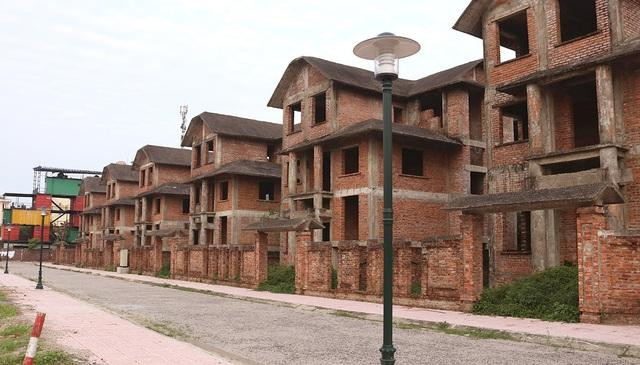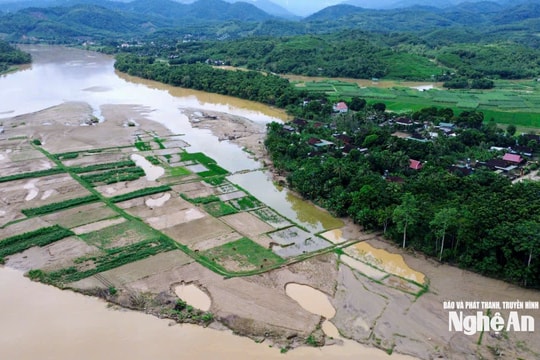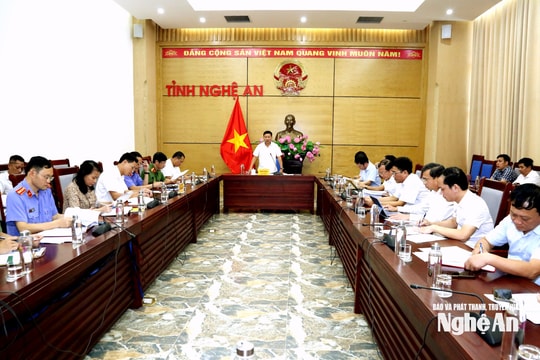Timely adjust or cancel outdated and unfeasible planning
Timely adjust or cancel outdated or infeasible planning.
 |
Resolutely reclaim projects that are behind schedule. |
National Assembly Delegate Nguyen Tao, National Assembly Delegation of Lam Dong province, questioned the Prime Minister at the 3rd Session of the 15th National Assembly:
The problem of "suspended planning"In many localities today, this has caused many consequences, damages, and difficulties for the people. There are plans for projects that have been planned for 10 years, 20 years, or even longer, but have not yet been implemented. This limits the right to exploit and use land, hinders socio-economic development, and people within the planning boundaries fall into misery and face many difficulties. The State loses budget revenue, and the appearance of urban areas where there are suspended plans and projects becomes shabby.
The above situation shows that there are still many contradictions and overlaps in the legal system of related sectors and construction planning; urban planning and new rural planning are not synchronized with land use planning; the quality of planning and feasibility of some planning projects are still low; violations still occur in planning management; in addition, there is the responsibility of local authorities in the steps of project appraisal and approval.
We respectfully request the Prime Minister to direct ministries, branches and localities to review all current projects to have plans to inspect, urge progress and resolutely revoke projects that are more than 5 years behind schedule; at the same time, direct ministries, branches and localities to improve the quality of appraisal and approval of planning and projects to promote efficiency and liberate land resources for the country's socio-economic development.
On this issue, the Prime Minister responded as follows:
“Pending planning” is understood as a type of planning that has been established and approved but the implementing organization is slow or fails to implement some of the planning contents. “Pending project” is understood as an investment project that has been identified in the planning, approved in principle or approved but the implementing organization does not ensure progress according to regulations.
Regarding planning, the national planning system includes national-level planning (national master planning, national maritime spatial planning, national land use planning, national sectoral planning), regional planning, provincial planning, planning of special administrative-economic units and urban planning, rural planning. Urban planning has a term of 10-20 years, depending on the classification and administrative level of the urban area and the general planning for the construction of functional areas as prescribed in Chapter II, the 2014 Construction Law has a term of 20-25 years (long-term orientation planning).
Regarding projects, for investment projects, implementation shall comply with the provisions of law on investment (Investment Law 2020 and documents detailing implementation); for construction investment projects, implementation shall comply with the provisions of law on construction (Construction Law 2014 and documents amending, supplementing, detailing implementation) and relevant current laws (land, investment, public investment, state budget, etc.). A construction investment project is a collection of proposals related to the use of capital to carry out construction activities... within a specified time limit and cost. The organization of the implementation of a construction investment project according to the planning involves many sectors, fields, and the project implementation progress is consistent with the time limit for urban, rural, and construction planning under the state management responsibility of local authorities according to decentralization.
Recently, implementing Resolution No. 59/2018/QH14 dated June 16, 2018 of the National Assembly on the National Assembly's Supervision Program in 2019 on the implementation of policies and laws on planning, management and use of land in urban areas since the 2013 Land Law took effect, the Ministry of Construction has issued Report No. 28/BC-BXD dated March 15, 2019 on this issue, in which it clearly identified the causes and proposed solutions; The National Assembly issued Resolution No. 82/2019/QH14 dated June 14, 2019 on continuing to improve and enhance the effectiveness and efficiency of implementing policies and laws on planning, management and use of land in urban areas. To overcome the situation of "suspended planning" and "suspended projects" affecting people's lives, the Ministry of Construction has advised the Government to submit to the National Assembly for approval of the amended Construction Law, which stipulates that people are granted construction permits for a limited period in areas where planning has been approved and announced by competent authorities but has not been implemented and there is no decision to reclaim land by competent state agencies. In addition, to thoroughly overcome this situation, there needs to be synchronous coordination between ministries, branches and local authorities.
Strengthen guidance, urging and inspection of localities in the management and implementation of planning.
Specifically, the Ministry of Construction and relevant ministries and branches need to focus on:
- Complete the system of legal documents, regulations and standards on construction planning and construction investment: amend and supplement the Construction Law, develop the Law on Urban Development Management, the Law on Urban and Rural Planning according to the National Assembly's Law-making Program, especially for regulations on the establishment and appraisal of construction planning; increase the participation of the community in the process of collecting opinions on planning projects; appraise construction investment projects, strengthen the examination of the capacity of investors in terms of capital, capital mobilization ability, management capacity and personnel; stipulate the responsibilities of management agencies and consulting agencies for planning quality. Complete the institution on inspection and supervision of planning implementation.
- Develop a plan and organize the strict implementation of Resolution No. 82/2019/QH14 dated June 14, 2019 of the National Assembly on continuing to improve and enhance the effectiveness and efficiency of implementing legal policies on planning, management and land use in urban areas; coordinate with localities to implement Directive No. 05/CT-TTg dated March 1, 2019 of the Prime Minister on strengthening the rectification of construction planning, urban planning, and urban development management according to approved plans.
- Develop policy mechanisms to attract investment (socialization) and diversify investment forms for social projects such as green parks, healthcare, education and traffic projects.
- Strengthen guidance, urging and inspection of localities in the management of planning implementation to promptly detect and handle violations such as revoking projects that are behind schedule according to regulations; handling officials who cause congestion, causing damage to investors and the State, affecting the legitimate rights of the people.
Resolutely reclaim slow-progressing projects and overcome the situation of "suspended projects"
Local authorities need to:
- Review planning, promptly adjust or cancel plans that are past their deadline and are not feasible. Review projects to have plans to inspect and urge progress and resolutely revoke projects that are behind schedule, overcoming the situation of "suspended projects".
- Develop a plan to implement the planning, publicize the planning and implementation plan in accordance with regulations.
- Prepare medium-term and annual investment plans, including investment in urban development and urban infrastructure.
- Develop urban programs, urban development areas and strictly control the speed and quality of urban development.
- Timely handle violations in planning implementation.
- Strengthen supervision by people, elected bodies, National Assembly delegations, and People's Council delegates at all levels during the process of planning and implementing construction investment projects.
In order to synchronously deploy solutions to overcome the shortcomings and limitations related to the issues of "suspended planning" and "suspended projects", in the coming time, the Prime Minister will continue to direct the Ministry of Construction to preside over and coordinate with the Ministry of Planning and Investment, the Ministry of Natural Resources and Environment and other ministries, branches and localities to review projects to have plans to inspect and urge progress, as well as resolutely revoke projects that are behind schedule; at the same time, request ministries, branches and localities to improve the quality of appraisal and approval of planning and projects to promote efficiency and release land resources for the country's socio-economic development.






.jpg)
.jpg)
